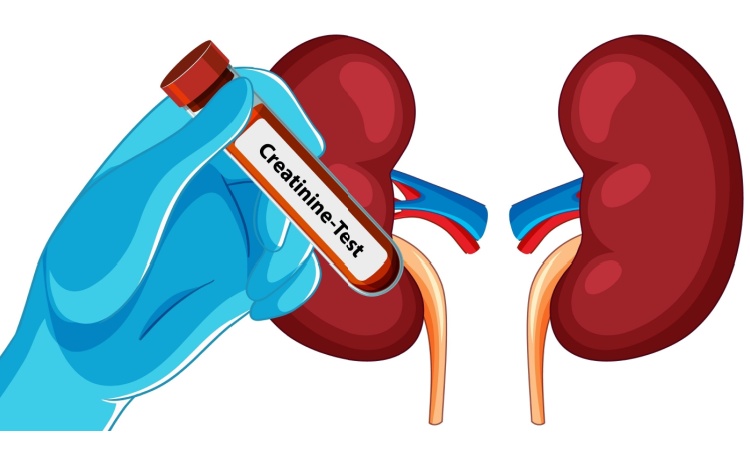Symptoms of Azotemia and Its Health Impact
Symptoms of Azotemia and Its Health Impact

Azotemia is a condition that often develops without noticeable symptoms. However, it can have a serious effect on overall health if not detected early. Azotemia occurs when the kidneys are unable to properly filter waste from the blood. It leads to a buildup of nitrogen-containing compounds. Many people may not recognize the early warning signs, mistaking them for general tiredness or minor health issues. Understanding the azotemia signs and symptoms is important for early treatment and preventing complications.
What is Azotemia?
Azotemia is a condition in which kidney function is impaired, and waste products begin to accumulate in the bloodstream. It is not a disease on its own but rather a condition that signals underlying kidney problems.
There are three primary types:
• Prerenal azotemia
It occurs when there is reduced blood flow to the kidneys due to dehydration, heart issues, or blood loss.
• Renal azotemia
It is caused by direct damage to the kidneys, often from infections, toxins, or autoimmune disorders.
• Postrenal azotemia
The condition results from a blockage in the urinary tract, like kidney stones or prostate enlargement.
Each form of azotemia has its own triggers. However, all of them present with similar symptoms.
Common Symptoms to Look Out For
Azotemia can affect different systems in the body. Here are the most common symptoms:
• Fatigue and Weakness
One of the earliest and most common signs of azotemia is constant fatigue. When waste products build up in the bloodstream, they interfere with normal cellular functions, making the body feel drained. You may notice a decline in your body energy levels or a general sense of weakness. The signs go unnoticed in most cases. However, persistent fatigue should not be ignored, as it could indicate underlying kidney issues.
• Nausea and Vomiting
Digestive issues are another common symptom. You may witness nausea with loss of appetite and repeated vomiting. This happens because toxins circulating in the blood irritate the stomach. Also, this can lead to malnutrition and unintended weight loss, which further weakens the body.
• Swelling and Fluid Retention
When the kidneys cannot balance fluids, the body retains water and salt. This results in swelling. Usually, it is seen in the feet, ankles, and hands. In some cases, the face or abdomen may swell. This condition is called edema. It can be uncomfortable and sometimes painful. Additionally, it may place an added strain on the heart and lungs.
• Mental Confusion
In advanced stages, azotemia can impact brain function. Patients may experience confusion and memory problems. This occurs because the buildup of toxins affects the central nervous system. In some cases, severe azotemia can even lead to drowsiness or coma if untreated. Mental changes are a red flag and require urgent medical attention.
How Azotemia Affects Daily Life
Azotemia has a significant impact on your physical health and daily activities. There is persistent fatigue, which further limits the ability to work or enjoy normal activities. The swelling can make walking or wearing shoes difficult. Besides, nausea can interfere with proper eating. These limitations can affect mental health, which can lead to stress and anxiety.
For families, managing a member with azotemia means constant care and regular hospital visits. Planning ahead with family health insurance can ease financial stress and make treatment more accessible. With coverage in place, families can focus more on care and less on cost.
Long-Term Health Risks of Azotemia
If left untreated, azotemia can progress into more severe kidney problems like uremia. This condition involves high toxin levels and can be life-threatening.
Other long-term risks include:
• Cardiovascular problems
• Bone weakness
• Reduced immunity
• Cognitive decline
These risks highlight the importance of regular checkups and early care. For older adults, having senior citizen health insurance ensures that advanced treatment options remain available without overwhelming financial strain.
Importance of Timely Diagnosis
Early diagnosis of this condition can aid in its treatment and management. Simple blood tests measuring urea and creatinine levels can confirm the condition. Also, doctors may recommend imaging studies to detect obstructions or kidney damage.
Catching azotemia early allows for treating the cause before it leads to permanent kidney damage. Preventive care is more affordable and less stressful compared to long-term dialysis or surgery.
It is also wise to plan ahead. Buy health insurance as a way of safeguarding against unexpected medical expenses. If you have ageing parents, investing in parents’ health insurance offers peace of mind, making sure that care will not be delayed due to financial concerns.
Conclusion
Azotemia is a serious condition that begins with symptoms such as nausea and fatigue. Its impact on daily life and long-term health can be quite high. However, timely diagnosis improves the outcome. Regular health checkups and proper medical coverage help manage the risks effectively. Kidney health should never be overlooked, as it is tied to overall well-being. It is critical to recognise the signs in the early stages and prepare with the right health insurance plans to safeguard yourself and your loved ones from financial stress.
Disclaimer: The above information is for illustrative purposes only. For more details, please refer to the policy wordings and prospectus before concluding the sales.
RELATED ARTICLES
Causes of Azotemia: Key Factors Behind the Condition
What are the causes of thrombosis?
Causes of Sjogren's Disease You Should Know
What Are the Causes of Aplastic Anaemia?
How to Diagnose Uremia? Tests & Procedures Explained










 Health Insurance
Health Insurance  Travel Insurance
Travel Insurance  Car Insurance
Car Insurance  Cyber Insurance
Cyber Insurance  Critical Illness Insurance
Critical Illness Insurance
 Pet Insurance
Pet Insurance
 Bike/Two Wheeler Insurance
Bike/Two Wheeler Insurance  Home Insurance
Home Insurance  Third Party Vehicle Ins.
Third Party Vehicle Ins.  Tractor Insurance
Tractor Insurance  Goods Carrying Vehicle Ins.
Goods Carrying Vehicle Ins.  Passenger Carrying Vehicle Ins.
Passenger Carrying Vehicle Ins.  Compulsory Personal Accident Insurance
Compulsory Personal Accident Insurance  Travel Insurance
Travel Insurance  Rural
Rural 











